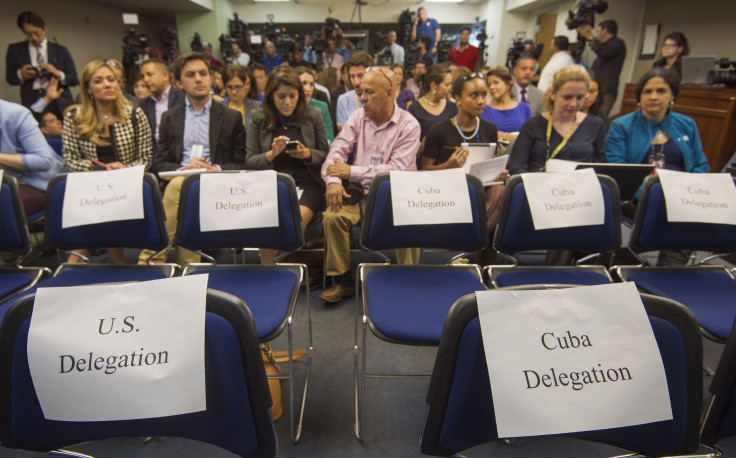US-Cuba Talks: 'Progress' But No Deal On Opening Embassies

U.S. and Cuban diplomats reported progress as two days of talks held in Washington closed Friday, but said a deal had not been struck, which would allow the two countries to open embassies, according to media reports.
The U.S. has demanded that its diplomats should be free to travel in Cuba, and speak with ordinary citizens -- something which the government in Havana regards as a means of stirring up dissent.
However, Roberta Jacobson, the assistant secretary of state for western hemisphere affairs, told the New York Times that a deal should be possible, with an embassy operating in a similar fashion to those that are already in place in other countries with authoritarian regimes.
“There are a range of ways in which our embassies operate around the world in different countries,” she said. “We expect that in Cuba, our embassy will operate within that range. It won’t be unique. It won’t be anything that doesn’t exist elsewhere in the world.”
The Cubans have expressed willingness to allow U.S. diplomats to travel in the country without restrictions, if they agreed to refrain from providing support to dissidents, which has proved a sticking point in the talks, a U.S. official told Voice of America.
Cuba has been angered in the past by journalist training and democracy education programs carried out by the U.S. interests section of the Swiss embassy in Havana, which is staffed by U.S. foreign service officials.
Cuba said the talks would continue, but gave no date for a future next round. Jacobson said another high-profile gathering might not be necessary, the Associated Press reported.
President Barack Obama and Cuban President Raul Castro agreed in December to begin the process of normalizing diplomatic relations between the two countries, which have been frozen for decades.
The U.S has so far announced it plans to remove Cuba from a blacklist of state sponsors of terror, which should happen around May 29 after a 45-day review period by Congress. Cuba has also recently found a U.S. bank that is willing to handle its financial affairs in the country.
© Copyright IBTimes 2024. All rights reserved.












